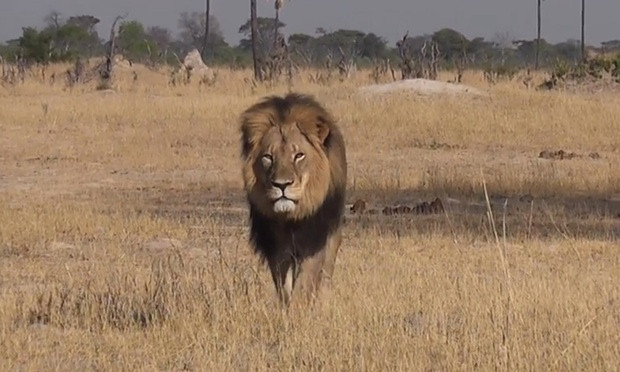Cecil the lion: US government to add African lions to endangered species list

The US government is planning to add African lions to the endangered species list in a bid to ward off hunters from slaughtering the king of the jungle. The US Fish and Wildlife Service (FWS) says that it plans to tighten the laws and restrict the importation of wildlife trophies following a year in which the population of the giant felines has declined dramatically.
"The lion is one of the planet's most beloved species and an irreplaceable part of our shared global heritage," said Dan Ashe, director of the FWS. "If we want to ensure that healthy lion populations continue to roam the African savannahs and forests of India, it's up to all of us – not just the people of Africa and India – to take action."
Under the new movement, two lion subspecies will receive increased protection. These lions are the Panthera leo leo – more commonly known as the African lion – which can be found in India and Africa, and the Panthera leo melanochaita – which heralds from eastern and southern Africa.
There are just 1,400 African lions left and the new rules mean that the hunting trophies will be banned from importation to the US. There are up to 19,000 Pl melanochaita lions remaining, and although they are not under threat from extinction yet, they will have tighter regulations placed on them regarding importation.
Lion populations have almost halved in the last 20 years, and the killing of Cecil the lion earlier in 2015 highlighted the need to give the animals more protection.
"Sustainable trophy hunting as part of a well-managed conservation program can and does contribute to the survival of the species in the wild, providing real incentives to oppose poaching and conserve lion populations," said Ashe. "Implementing a permit requirement will give us the authority we need to work with African countries to help them improve their lion management programs.
"Importing sport-hunted trophies and other wildlife or animal parts into the United States is a privilege, not a right; a privilege that violators of wildlife laws have demonstrated they do not deserve. We are going to strengthen our efforts to ensure those individuals – people who have acted illegally to deprive our children of their wildlife heritage – are not rewarded by receipt of wildlife permits in the future."
© Copyright IBTimes 2025. All rights reserved.






















